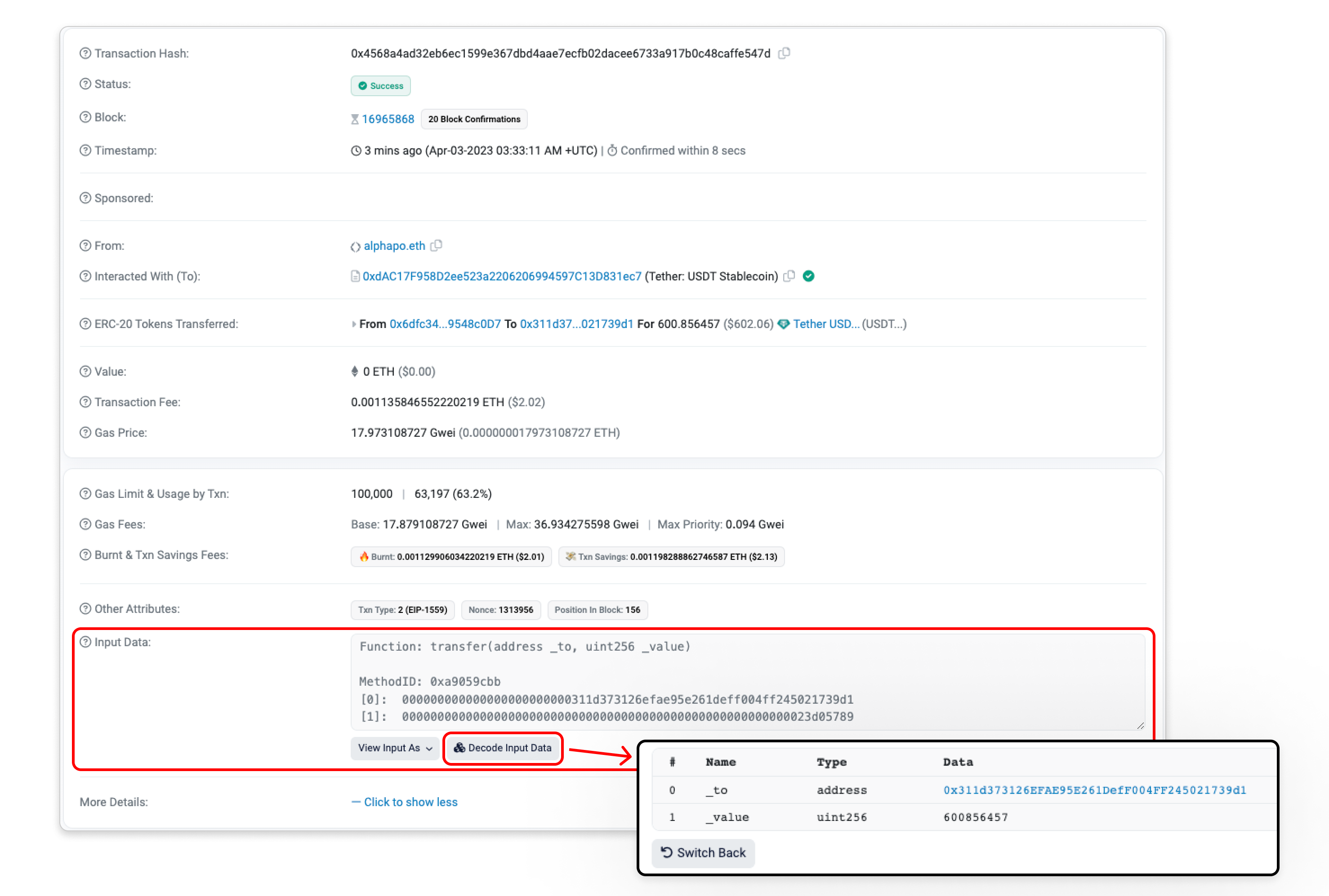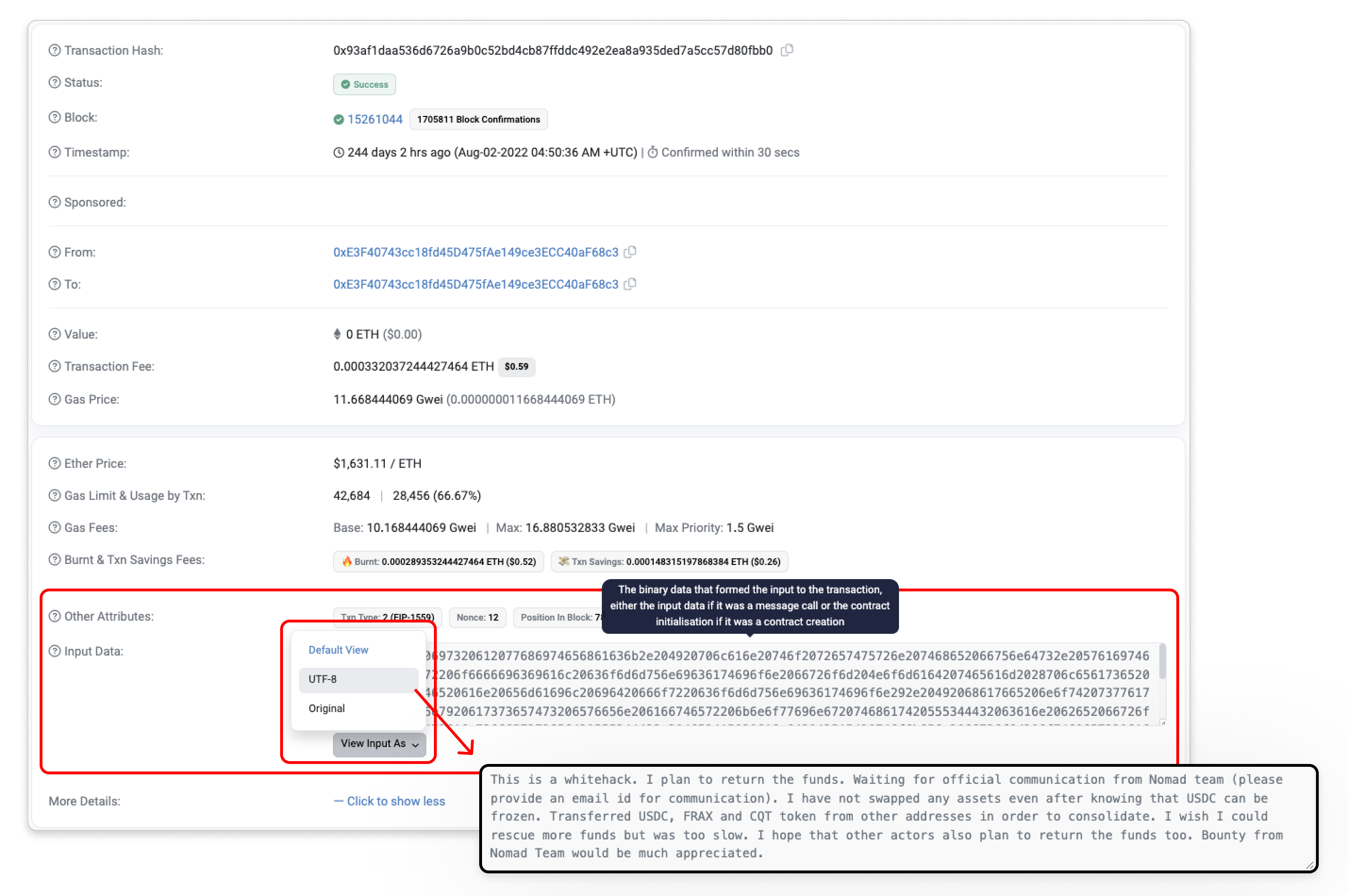Understanding Transaction Input Data
The Input Data field is a part of an Ethereum transaction that allows users to include additional information along with the transaction. This field is typically represented as a hexadecimal string.
The Input Data field is a useful feature in a transaction because it enables smart contracts to be executed with different parameters or arguments, allowing for flexibility and customization. Additionally, arbitrary data can be included in the Input Data field, enabling users to attach additional information or metadata to their transactions.
Types of Input Data in an Ethereum Transaction
There are two main types of input data that can be included in an Ethereum transaction: function call data and arbitrary data.
1. Function Call Data
Function call data is the most common type of input data and is used to call a specific function in a smart contract. Function call data typically includes the function signature (or MethodID) and any parameters that the function requires. For example, if a user wants to transfer tokens to another account on Ethereum, they would need to send a transaction to the smart contract that manages those tokens. The Input Data for this transaction would typically include the function signature for the transfer function and the parameters for that function, such as the recipient's address and the amount of tokens to transfer.
Here's an example of function call data for a simple ERC-20 Token Transfer function in the USDT smart contract:

Function Signature: transfer(address _to, uint256 _value)
Parameters:
[0]: 000000000000000000000000311d373126efae95e261deff004ff245021739d1
[1]: 0000000000000000000000000000000000000000000000000000000023d05789In this example, the transaction input data specifies a call to the transfer function in the USDT smart contract 0xdAC17F958D2ee523a2206206994597C13D831ec7, with a transfer value of 0x23d05789 (equivalent to 600.856457 USDT) to the recipient address 0x311d373126EFAE95E261DefF004FF245021739d1.
2. Arbitrary Data
Arbitrary data is any data that is not related to a specific function call in a smart contract. This data doesn't change any state on Ethereum as it is not interpreted nor executed by the Ethereum Virtual Machine (EVM). Instead, it is treated as a simple sequence of bytes. Arbitrary data can be useful for attaching a message to a transaction and providing metadata about the transaction.
In this example, the user is attaching a message within the transaction:

The arbitrary data translates to a human-readable message in UTF-8 encoded format. When this transaction is included in a block on Ethereum, the message will be attached to the transaction and can be read by anyone who accesses the blockchain.
Pro Tip: Input Data Message
Transactions with a message in the input data field are marked with an asterisk(*) in the address page:

